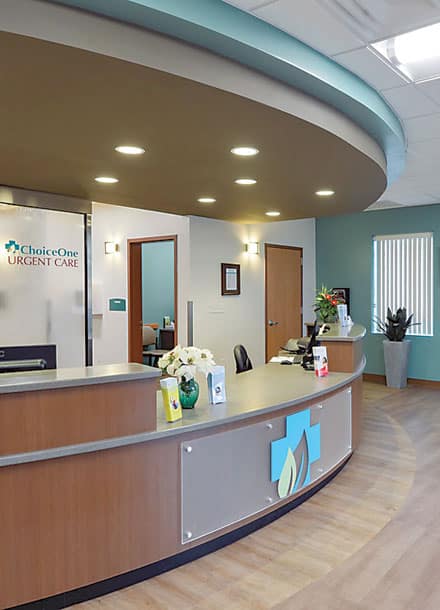1. Possible Broken Bone
It’s a Saturday afternoon and that game of backyard football got a bit too rambunctious. Now you’re cradling your wrist in pain, but you can’t tell whether it’s broken or just sprained.
While either a broken or sprained wrist doesn’t rise to the level of requiring a trip to the hospital ER, it’s probably not going to be comfortable to wait till your primary care physician is open on Monday. Head to urgent care to get it checked out.
2. Burns
You’re putting a sheet of cookies in the oven when your hand brushes against the side of the oven. A small, red welt appears, but after you apply cool water to it, the pain subsides. This is most likely a first-degree burn and will probably heal on its own.
But if you notice blistering or have severe pain or swelling, you have entered second-degree burn territory, which does require a trip to urgent care. Take a detour to the ER, or call 911, if a burn occurs on your face, hands, feet, groin or buttocks, is accompanied by difficulty breathing, or is the result of electricity or chemicals.
3. Severe Flu Symptoms
If you’d classify your flu symptoms as “pretty normal”—meaning cough, sore throat, runny nose, body aches and fatigue—then waiting it out or calling your primary care doctor is sufficient. But when symptoms take a more severe turn, as in sudden dizziness, difficulty breathing or persistent vomiting, especially in children and infants, then it’s time to head to the emergency room.
4. Chest Pain
You are experiencing sudden, unfamiliar chest pain.
If you brush it off as just heartburn, you may be ignoring the first warning sign of a heart attack. Acting fast is key to survival, so call 911 right away. Other symptoms include pain or tingling in one or both arms, back or jaw pain, shortness of breath, or—especially in women—nausea, unexplained sweating and lightheadedness.
5. Possible Concussion
You slip on a wet patch of pavement and go down hard, hitting your head on the sidewalk. An hour later, you feel nauseated. Head to the ER to check for a possible concussion, which can cause more severe problems later if left untreated. Other symptoms include blurry vision, sensitivity to light, balance problems or a headache that doesn’t go away.
How GMC Can Help
GMC is partnering with ChoiceOne Urgent Care to jointly operate a network of urgent care centers in our region. The initial two centers will open in April, and are located in Hamilton Mill and Sugar Hill.
Plus, GMC’s emergency departments in Duluth and Lawrenceville, offer the ER Express program to help minimize your wait. The emergency department at GMC-Lawrenceville also includes a dedicated Children’s Emergency Center staffed by specially-trained pediatric experts and a Level II Trauma Center. Please note that the emergency departments at GMC-Lawrenceville continue to be open 24/7 during the current renovations.
For more information and directions visit:gwinnettmedicalcenter.org/emergency.


